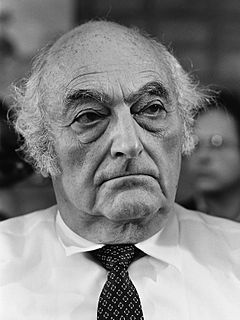A Quote by Sasa Stanisic
I also did a great amount of writing while doing research. It gave me the opportunity to meet and talk to people other than family, but also to explore my own memory deeper by comparing it to the memories of others who were in my home town during, for example, the political transition from socialism to a nationalistic "democracy" or during the bombings.
Related Quotes
I was really interested in this ability for others to create virtual memories for us. In "The Cartographers" I explore this through Adam Woods, and the company he works for, which produces virtual memories that people can beam into their consciousness. While the technology is sci-fi, the story is also a metaphor for the way love relationships create memories in our minds.
The struggle for socialism is the struggle for proletarian (working class) democracy. Proletarian democracy is not the crown of socialism. Socialism is the result of proletarian democracy. To the degree that the proletariat mobilizes itself and the great masses of the people, the socialist revolution is advanced. The proletariat mobilizes itself as a self-acting force through its own committees, unions, parties, and other organizations.
I love really exploring... you know, a cop drama for example is a great way to explore class in this country and explore, you know, really, identity in the country and who we are in a way that is extremely exciting, but it's also real, you know, it's also real people and real drama. The same with the military. I mean, a good science fiction story is also great.
God is also fully aware that the people you think are perfect are not.
And yet we spend so much time and energy comparing ourselves to others-usually comparing our weaknesses to their strengths. This drives us to create expectations for ourselves that are impossible to meet. As a result, we never celebrate our good efforts because they seem to be less than what someone else does
I had a really unusual, remarkably unusual father because he, in our family, was the one that suffered the most. He was the one that explained American democracy to me. He said, ‘Our democracy is a people’s democracy and it can be as great as people can be, and it can be great… but we are also fallible human beings.’
Commercials are also any opportunity to meet new crew and work with new kind of rigs. You can explore working with different people without having to make the full commitment of having to do an entire feature film with them and see whether you like them. Also it's great for testing out new equipment, like on the last spot we just did, I used a lot of drone technology, really cutting edge drone stuff, more than I've ever done before, and it worked out really really well.
All that socialism means to me, to be very frank with you, is democracy with a small 'd.' I believe in democracy, and by democracy, I mean that, to as great an extent as possible, human beings have the right to control their own lives. And that means that you cannot separate the political structure from the economic structure.
I was really inspired by my own experience, and specifically my own identity crisis but larger than that, I also wanted to explore the trend of reverse immigration, of the immigrant returning home after being in a host country or an adopted home for 20 years, and finding themselves at various levels of discord with the home culture. I wanted to explore people building lives across multiple geographies. I think that's, something that we're experiencing more and more as travel becomes easier, as people are traveling more for work. People can work from anywhere.
I admire Joyce Maynard a lot, specifically her memoir "At Home in the World." Her writing is beautiful and fascinating and seemed to give me validation to the idea that I could write validly in earnest about my life with (my) very feminine point of view, and also that I could unapologetically explore the bad traits of my character (which I find to be more interesting to explore than the good traits), as well as explore other concepts that interest me like private vs public personas, age gap relationships, etc.
I think about my cocaine use. I liked it. I thought it was a great drug. But I knew that if I was doing that almost exclusively, I wouldn't be able to continue to also have significant others and a wide range of other things. And I wasn't special. A number of people, including the people I was doing cocaine with, also behaved the same way.






































